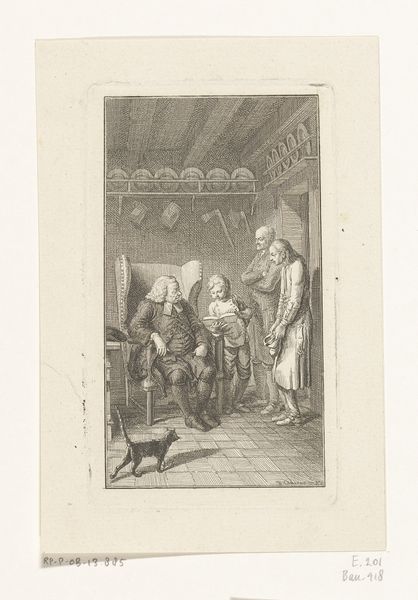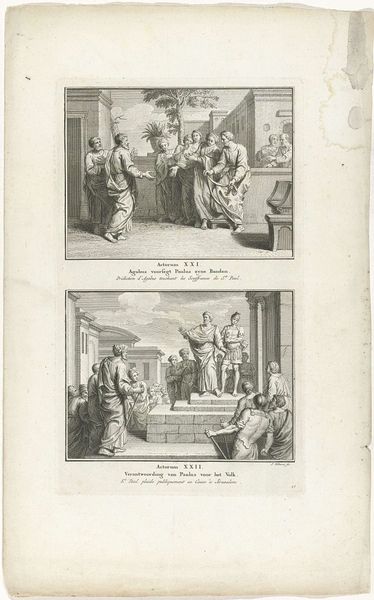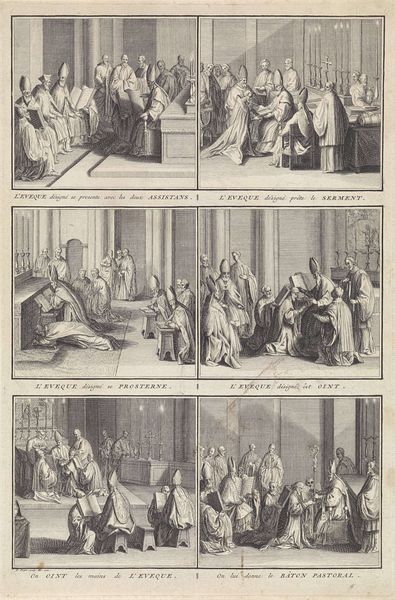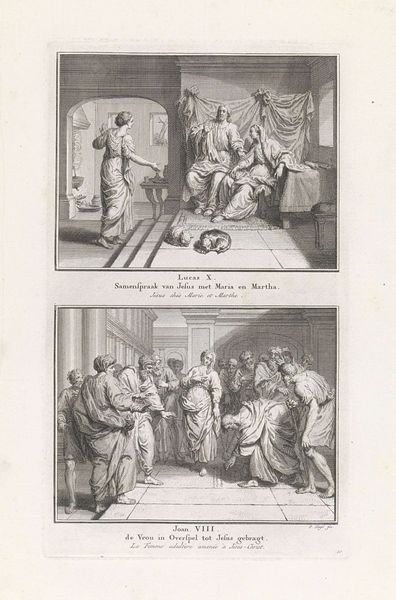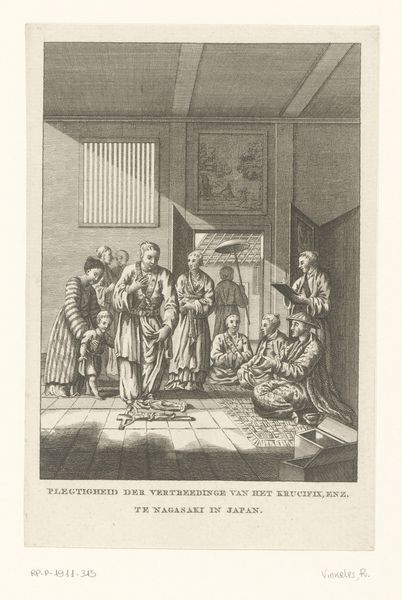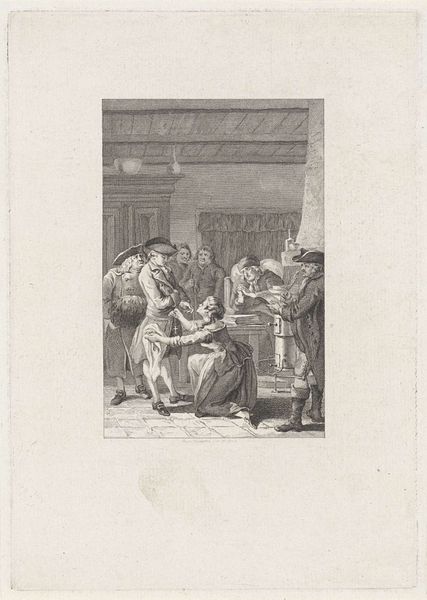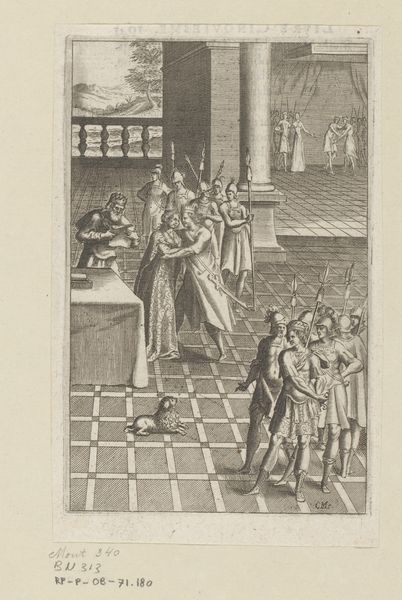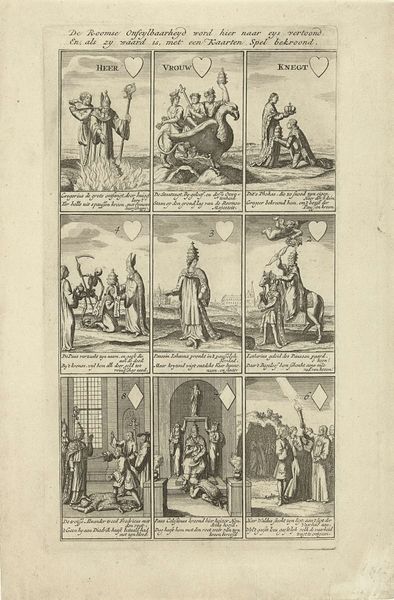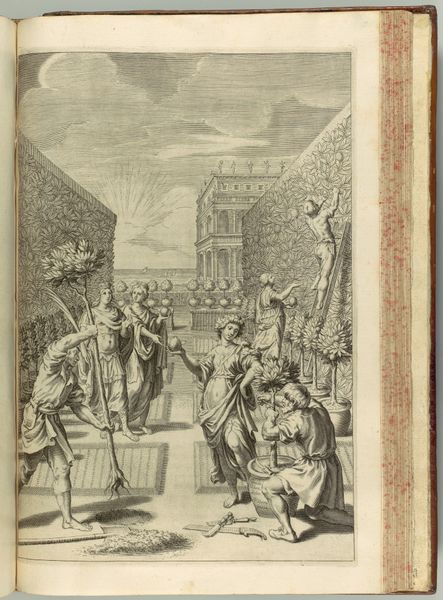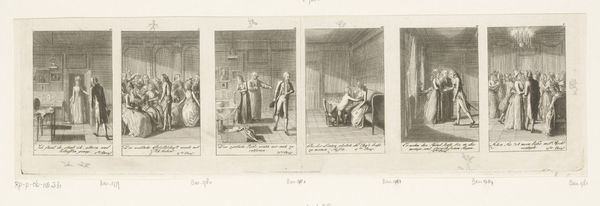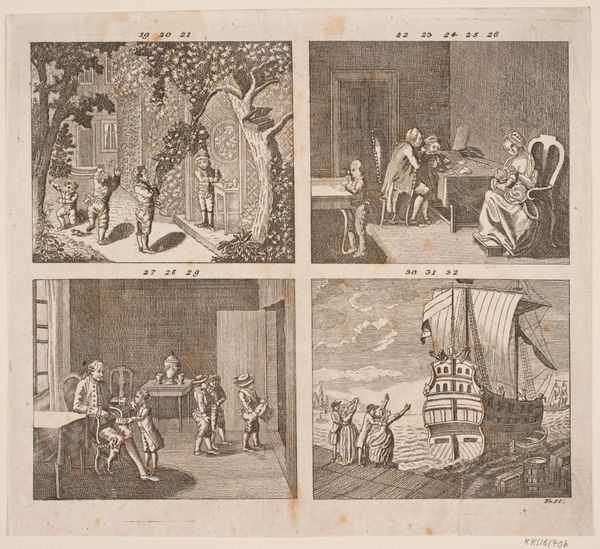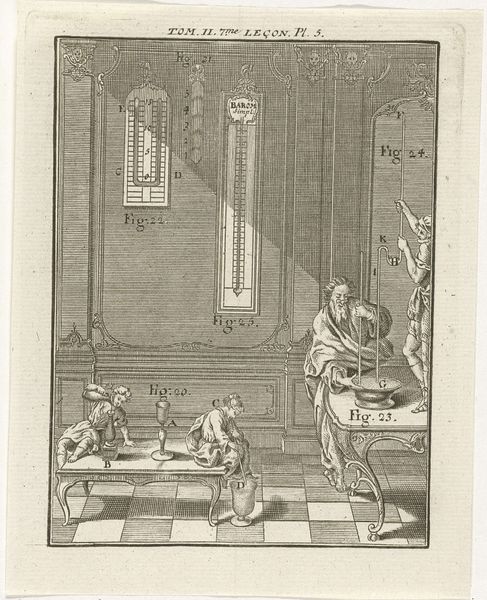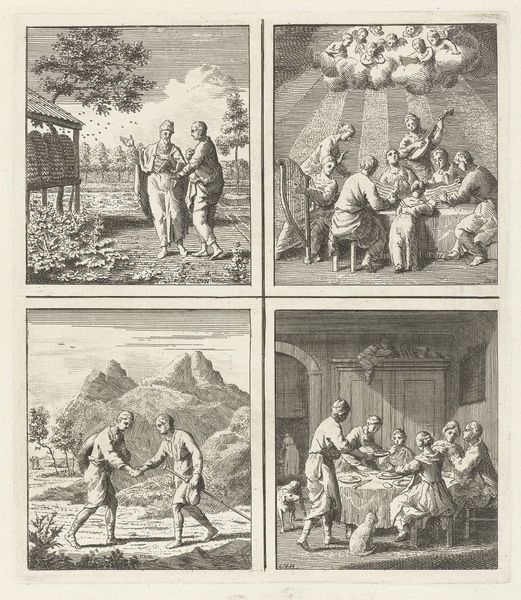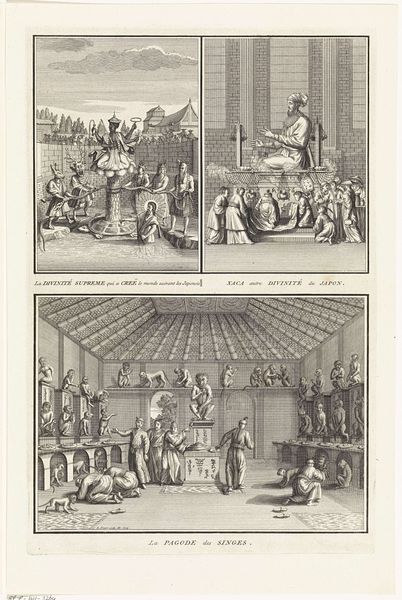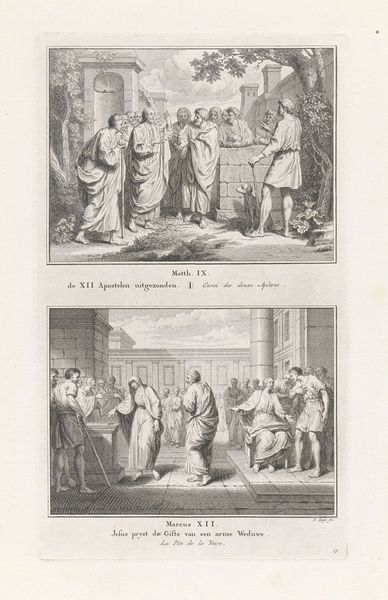
print, engraving
#
narrative illustration
#
comic strip
# print
#
asian-art
#
traditional media
#
sketchwork
#
history-painting
#
engraving
Dimensions: height 334 mm, width 222 mm
Copyright: Rijks Museum: Open Domain
Bernard Picart made this print of Chinese deities sometime in the early 1700s, using the intaglio process of engraving. This meticulous, linear technique involves incising an image into a metal plate, applying ink, and then using immense pressure to transfer the image to paper. Look closely, and you'll see how the precision of the engraving captures the textures of the figures’ garments and the architectural details of their settings. The linear quality of the technique lends itself well to conveying detail, but at the expense of volume and shadow. The print exemplifies the cultural exchange of the period, where European artists sought to represent distant lands. But there's a tension between the laborious craft of engraving and the mass-producible nature of printmaking, highlighting a shift toward industrialized image-making. In this work, the skill of the engraver meets the emerging forces of global trade and cultural representation. It reminds us that even seemingly straightforward images are laden with complex histories of making, labor, and cultural exchange.
Comments
No comments
Be the first to comment and join the conversation on the ultimate creative platform.
